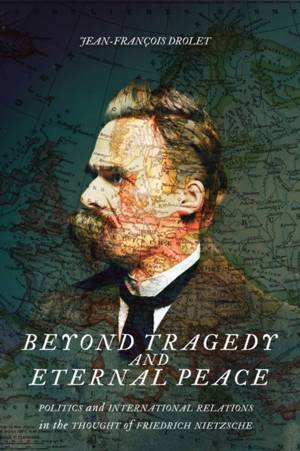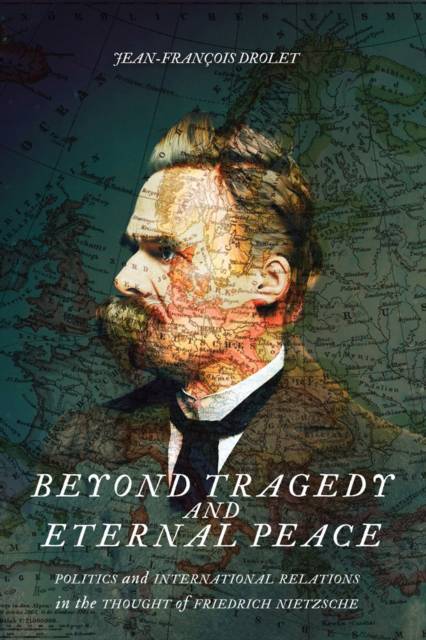
Door een staking bij bpost kan je online bestelling op dit moment iets langer onderweg zijn dan voorzien. Dringend iets nodig? Onze winkels ontvangen jou met open armen!
- Afhalen na 1 uur in een winkel met voorraad
- Gratis thuislevering in België vanaf € 30
- Ruim aanbod met 7 miljoen producten
Door een staking bij bpost kan je online bestelling op dit moment iets langer onderweg zijn dan voorzien. Dringend iets nodig? Onze winkels ontvangen jou met open armen!
- Afhalen na 1 uur in een winkel met voorraad
- Gratis thuislevering in België vanaf € 30
- Ruim aanbod met 7 miljoen producten
Zoeken
Beyond Tragedy and Eternal Peace
Politics and International Relations in the Thought of Friedrich Nietzsche Volume 80
Jean-François Drolet
€ 158,45
+ 316 punten
Uitvoering
Omschrijving
As a German philosopher, cultural critic, composer, poet, philologist, and scholar of Latin and Greek, Friedrich Wilhelm Nietzsche has exerted a profound influence on modern intellectual history. Beyond Tragedy and Eternal Peace provides an overview of his legacy, highlighting the synergy between his critique of metaphysics and his reflections on the politics and international relations of the late nineteenth century.Jean-François Drolet exposes and analyzes Nietzsche's account of the political processes, institutions, and dominant ideologies shaping public life in Germany and Europe during the 1870s and 1880s. Nietzsche anticipated a new kind of politics, borne out of such events as the Franco-Prussian War, the unification of Germany under Bismarck, the advent of mass democracy, and the rise and transformation of European nationalism. Focusing on conflict and political violence, Drolet expertly reconstructs Nietzsche's fierce and continued critique of the nationalist, liberal, and socialist ideologies of his age, which the philosopher believed failed to grapple with the death of God and the crisis of European nihilism it engendered.As this reconstructive interpretation reveals, Nietzsche's philosophy offers a powerful and still greatly underappreciated reckoning with the changing political practices, norms, and agencies that led to the momentous collapse of the European society of states during the early twentieth century.
Specificaties
Betrokkenen
- Auteur(s):
- Uitgeverij:
Inhoud
- Aantal bladzijden:
- 256
- Taal:
- Engels
- Reeks:
Eigenschappen
- Productcode (EAN):
- 9780228005599
- Verschijningsdatum:
- 15/02/2021
- Uitvoering:
- Hardcover
- Formaat:
- Genaaid
- Afmetingen:
- 157 mm x 231 mm
- Gewicht:
- 480 g

Alleen bij Standaard Boekhandel
+ 316 punten op je klantenkaart van Standaard Boekhandel
Beoordelingen
We publiceren alleen reviews die voldoen aan de voorwaarden voor reviews. Bekijk onze voorwaarden voor reviews.











